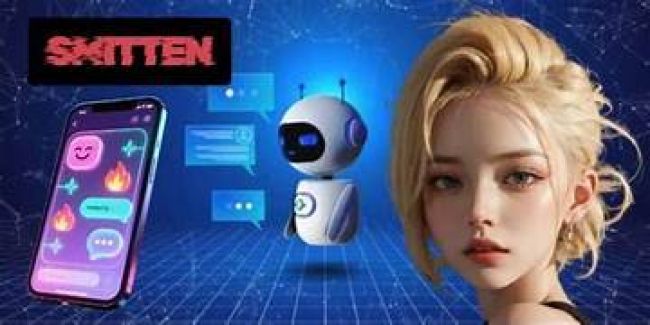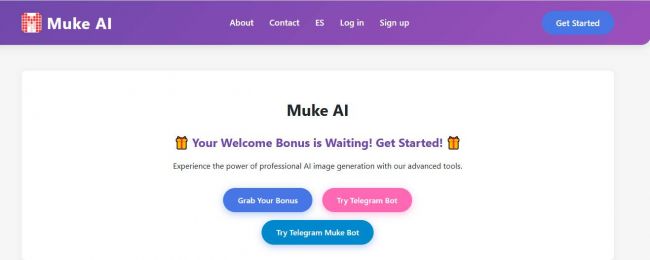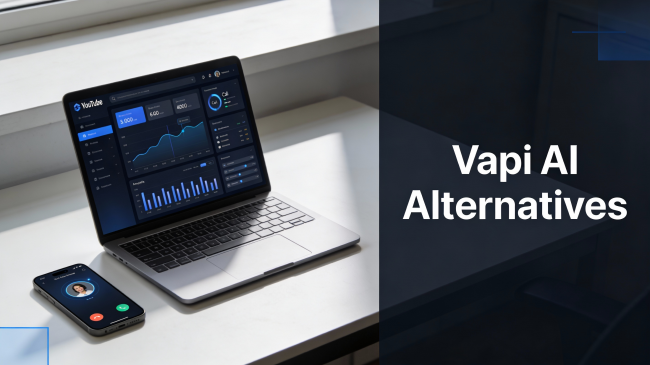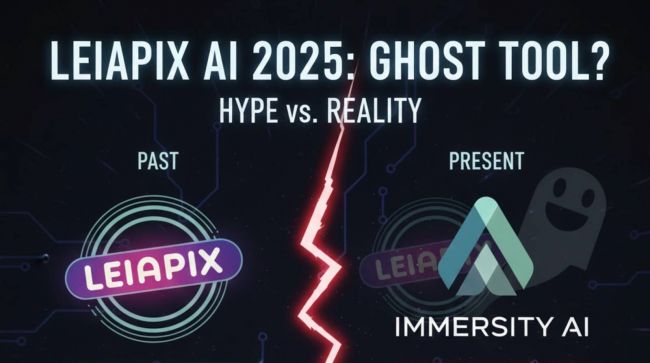On This Page
- AI Adoption Is Surging—And Businesses Can’t Wait
- AI’s Explosive Growth and Business Impact
- Understanding Claude and its Advantages
- The Role of a Claude AI Developer
- Business Benefits of Hiring a Claude AI Developer
- Demand for AI Talent: A Perfect Storm
- Hiring Strategies: Making the Most of Claude Talent
- Conclusion
AI Adoption Is Surging—And Businesses Can’t Wait
Artificial intelligence (AI) has rapidly moved from experimental to mainstream in the past few years. Companies across industries are racing to integrate advanced AI tools into their products and processes. Among the latest AI innovations, Anthropic’s Claude stands out as a powerful and developer-friendly large language model. Hiring a Claude AI developer means bringing on board an expert who can design and implement AI-driven solutions using Claude’s capabilities. With AI adoption at an all-time high and specialized talent in short supply, now is arguably the best time to hire Claude AI developer. Businesses that act quickly can leverage Claude to accelerate development, boost productivity, and gain a competitive edge, while those who wait risk falling behind.
As Forbes notes, the companies leading today are those treating AI as an enterprise-wide capability, not a pilot project.
An AI developer leveraging a powerful language model like Claude to accelerate software development.
AI’s Explosive Growth and Business Impact
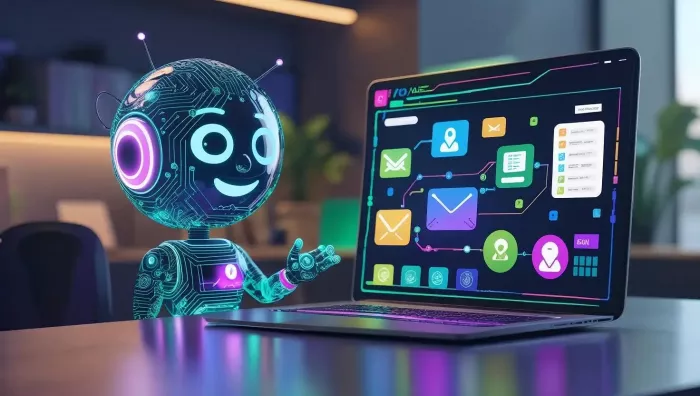
AI is no longer a niche technology – it’s a strategic imperative. Recent surveys show widespread AI adoption: 78% of organizations report using AI in at least one function, up from just 55% two years ago. Even more striking, 71% of companies say they use generative AI (tools like Claude or ChatGPT) in one or more business areas. In fact, 4 in 5 companies (83%) now consider AI a top priority in their business strategy. These numbers underline a clear trend: AI is quickly becoming an integral part of product development, customer engagement, and internal workflows.
These trends align with broader market data from Statista’s global AI industry research, which shows AI adoption increasing across every major sector.
To underscore the urgency: an estimated 97 million new AI roles will be needed by 2025 to meet demand, and job postings for AI-related positions are soaring. For example, LinkedIn data shows AI-related job postings grew by 38% between 2020 and 2024, and postings specifically for generative AI developers jumped about 50% between 2022 and 2024. Meanwhile, 9 out of 10 executives see AI as a way to gain a competitive edge, and many report significant productivity boosts (some estimates suggest up to a 40% increase in employee productivity by 2035 due to AI).
Companies that hire AI talent now can capitalize on these trends. The table below summarizes key statistics highlighting AI’s rapid growth and the high demand for AI developers:
| Statistic | Value |
| Organizations using AI in ≥1 business function | 78% (2024) |
| Organizations using generative AI (ChatGPT/Claude) | 71% (2024) |
| Companies prioritizing AI in strategy | 83$ |
| Large companies reporting an AI talent shortage | 76$ |
| Growth in AI-related job postings (2020–24) | +38$ |
These figures show a surging interest in AI combined with a talent crunch. Over three-quarters of large firms say they have a severe shortage of AI expertise on their teams, even though nearly all acknowledge that AI is crucial to their future. This shortage makes it increasingly difficult to hire AI developers for your project, regardless of specialization, including those with Claude expertise.
Understanding Claude and its Advantages
Claude is Anthropic’s family of advanced language models, designed for natural language understanding, reasoning, and code generation. Compared to other AI tools, Claude offers unique strengths that make it particularly appealing for developers. Industry reviews note that “Claude is best for users focused on sophisticated text and code work”, thanks to its more natural writing style, powerful coding capabilities, and deep analytical skills. In other words, Claude shines at tasks involving complex code generation or detailed analysis. Its large context window (up to 200K tokens in recent versions) allows it to handle lengthy documents and large codebases more effectively than many competitors.
Anthropic has heavily optimized Claude for developers. According to Anthropic, Claude Sonnet 4 leads on the SWE-bench coding benchmark, achieving a 72.7% success rate in software engineering tasks. In practical terms, this means Claude can write and debug code with a very high accuracy. Real-world case studies reflect these capabilities. For example, Headstart – an AI-native software development firm – reports that using Claude writes 90–97% of client code automatically and enables development 10–100× faster than traditional methods. (In one project, a task estimated to take 4–8 months was completed in two weeks!)
Beyond raw performance, Claude emphasizes safety and usability. It comes with advanced alignment and content-filtering to reduce harmful outputs. It also offers intuitive interfaces (including an API and a chat UI) that developers find easy to adopt. As one early user put it: “I taught a friend who has never written code how to use Claude to build a simple app and deploy it... Watching someone realize that they can now build software is a great experience.” This blend of safety, performance, and ease-of-use means that a Claude AI developer can tap into cutting-edge LLM power without some of the risks or complexity associated with other models.
The Role of a Claude AI Developer
So what exactly does a Claude AI developer do? Think of them as a hybrid between a software engineer and an AI specialist. Their job is to design and implement applications and tools powered by Claude’s language models. This can range from building intelligent chatbots and virtual assistants to automating data processing and even writing production code. For example, a recent job posting for a “Claude AI Developer” specifies responsibilities like “designing and developing AI-powered solutions using Anthropic’s Claude language models”, “building conversational interfaces, automating tasks, and integrating Claude into our enterprise platforms and products”.
Key tasks for a Claude AI developer often include:
- Prompt engineering and fine-tuning: Crafting effective prompts or examples to guide Claude’s outputs, and adjusting model parameters to align with business goals.
- System integration: Embedding Claude via its API into existing software, websites, or cloud services (e.g. hooking it up through AWS Bedrock or other platforms).
- Application development: Writing the surrounding code (in Python, JavaScript, etc.) that calls Claude, processes its responses, and delivers functionality to users (such as chatbots, report generators, or code assistants).
- Collaboration and oversight: Working closely with data scientists, DevOps engineers, and product managers to ensure the AI features are robust, ethical, and maintainable.
In other words, a Claude AI developer is an engineer who understands how to get the most out of Claude’s capabilities and integrate them safely into products. This requires not just general coding skills, but specific knowledge of large language models, prompt design, and AI ethics/safety practices. Companies like Tachyon Technologies are already explicitly looking to hire AI developers with Claude-specific qualifications. They look for people who can “fine-tune and optimize prompts… integrate Claude into internal tools” and who have “hands-on experience with Claude AI via Anthropic’s API… [and a] strong understanding of prompt engineering, few-shot learning, and LLM use cases”.
For business leaders, this means a Claude AI developer can bridge the gap between cutting-edge AI research and practical business applications. They speak the language of both engineering and AI strategy. Whether you’re a startup founder, an IT manager, or an HR lead, having such a specialist on your team makes the integration of AI technology much smoother and more effective.
Claude excels at coding tasks – here a developer uses AI-generated code on a laptop. Claude’s ability to understand and generate code makes it a “superior choice for developers” focused on complex software tasks.
Business Benefits of Hiring a Claude AI Developer
The advantages of adding a Claude AI developer to your team can be profound. Thanks to Claude’s powerful capabilities, developers can automate routine coding tasks, generate documentation, refactor existing code, and more – all under expert supervision. Consider the case of Headstart again: by leveraging Claude, they sped up software delivery by up to 100× and slashed project timelines from months to weeks. If even part of that acceleration is achievable in your context, the ROI is enormous. Faster development means quicker time-to-market for new features and products. It means your team can experiment with more ideas and iterate rapidly.
Key benefits for your business include:
- Accelerated development cycles: AI-assisted coding can handle boilerplate, testing, and even much of the implementation. Engineers spend less time on rote work and more on creative problem solving. (As one CEO said, Claude writing 90–97% of the code lets the team focus on high-level design.)
- Cost efficiency: By reducing the need for lengthy manual coding, a Claude developer helps cut development costs. Faster delivery can also enable fixed-price (flat-fee) models that benefit clients.
- Innovation and quality: Claude’s deep analysis can catch bugs and suggest improvements that human developers might miss. Its large context window lets it handle complex projects and ensure consistency.
- Competitive advantage: Using AI to speed up processes and launch features faster gives your company a technological edge. It can enable offerings that would be impractical otherwise.
- Better resource utilization: Existing developers and domain experts can be augmented by AI rather than replaced. This “AI co-pilot” approach means less idle time on developers and a happier, more productive team.
Importantly, these gains aren’t theoretical. Companies using tools like Claude report concrete improvements. As one AI strategist noted, Claude Sonnet “refactors like a monster… not a single mistake” and “optimizes code so well” that it effectively teleports existing code “forward in time”. Productivity enhancements like this translate into real business impact – shorter development sprints, lower error rates, and the ability to prototype new ideas quickly.
As reviewed in the analysis of emerging AI tools like Vidu and Comet AI, AI-augmented workflows deliver measurable ROI in B2B environments — and Claude is even more advanced.
Demand for AI Talent: A Perfect Storm
All signs point to a “perfect storm” of demand for AI developers. On one side, business demand is surging: AI’s proven benefits mean every industry, from finance to healthcare to retail, is looking to hire AI-savvy staff. On the other side, supply of talent is constrained. Recent analyses show that 76% of large companies report a severe shortage of AI talent on their teams. Specialized roles like “AI engineer”, “data scientist”, “prompt engineer”, or “Claude developer” are highly competitive. Salaries for these roles typically command a 20–30% premium over comparable non-AI positions.
Meanwhile, demand curves are still steeply upward. Major reports project 35–40% annual growth in the AI market through 2030, and investment in AI R&D is booming (global AI research funding recently rose from $80 billion in 2019 to $120 billion in 2023). Crucially, many companies are now moving beyond pilots into full-scale deployment. One survey indicates that by 2025, 75% of enterprises expect to have AI models in full production. This means the race to build capable internal AI teams is on.
A ScienceDirect study confirms that AI adoption is most successful when companies not only invest in tools but also embed human-AI collaboration into workflows. Without skilled developers to operationalize models like Claude, businesses risk stalled projects, wasted investment, and missed opportunities.
For hiring managers, this has two implications. First, waiting to hire an AI specialist risks losing out on talent and opportunities. Qualified AI developers – especially those experienced with the latest LLMs like Claude – are scarce, and job postings for AI roles have increased dramatically. Second, because the field is advancing so quickly, candidates who get trained on Claude today will have skills that are immediately applicable. In short, hiring a Claude AI developer now means catching an upward wave.
Hiring Strategies: Making the Most of Claude Talent
Given these factors, what should businesses do? Here are some practical tips:
- Look for specialized skills, not just general developers. A Claude AI developer needs familiarity with LLMs. In interviews, probe their experience with prompt engineering, fine-tuning models, and integrating LLM APIs. Relevant keywords in resumes include “Anthropic Claude”, “LLM engineer”, “AI prompt specialist”, or “AI-enhanced development”.
- Consider dedicated or contract roles. Because full-time AI talent is in demand, some companies find success hiring contractors or partnering with AI development agencies that provide Claude expertise. This can jump-start projects while building internal capacity.
- Train your current team. If you have strong software engineers but no AI experience, invest in training on Claude and other tools. Many developers now can become proficient with Claude’s API and get up to speed on best practices. Upskilling helps address the talent gap internally.
- Plan for collaboration. A Claude developer should work closely with data science, product, and legal teams. Establish workflows for how AI outputs are reviewed, how prompts are managed, and how sensitive data is handled (Claude’s safety features help here, but oversight is still needed).
- Measure and iterate. As with any technology hire, track the business impact. Metrics might include reduction in development time, user satisfaction improvements, or revenue influenced by new AI features. A strong Claude developer will advocate for measurable goals and improvements.
With demand so high, creative hiring strategies are often required. Some companies are partnering with universities or coding bootcamps, sponsoring AI hackathons, or even offering signing bonuses for LLM expertise. But the payoff is substantial: the organization that first masters Claude AI development can roll out new AI-driven products and enhancements faster, securing market advantage.
Conclusion
Claude AI is no longer a curiosity—it’s a production-ready tool reshaping software and business processes. Hiring a Claude AI developer today means securing talent capable of turning that power into results.
For startups, it accelerates time-to-market. For enterprises, it drives efficiency and competitive advantage. For every business, it’s a step toward embedding AI into the core of operations.
And the benefits aren’t just theoretical. As platforms like FirmSuggest highlight, AI is already transforming workflows and support in B2B settings, proving how quickly ROI can materialize when the right expertise is in place.
The market is moving fast, the talent pool is limited, and the payoff is significant. If there’s ever been a time to invest in Claude AI expertise, it’s now.
Post Comment
Be the first to post comment!


